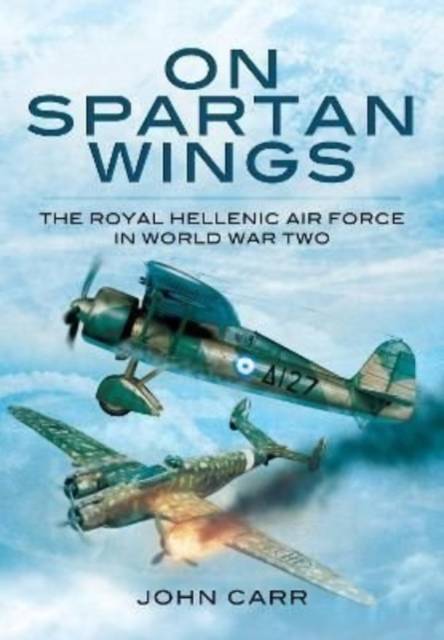
- Retrait gratuit dans votre magasin Club
- 7.000.000 titres dans notre catalogue
- Payer en toute sécurité
- Toujours un magasin près de chez vous
- Retrait gratuit dans votre magasin Club
- 7.000.0000 titres dans notre catalogue
- Payer en toute sécurité
- Toujours un magasin près de chez vous
Description
Rarely has an air force gone into combat as poorly prepared and outgunned as the Royal Hellenic Air Force had to when Mussolini's Italy dragged Greece into war on 28 October 1940. Without warning, as Italian forces poured over the frontier from Albania, the RHAF's paltry effective lineup of 128 battleworthy aircraft, most of them obsolete, were pitted against the 463 fielded by the Regia Aeronautica, whose pilots had honed their skills in the Spanish Civil War. On the Greek side, though, aces such as Marinos Mitralexis, with his audacious ramming of an Italian bomber on the fifth day of the war, ensured that morale in the RHAF remained high. Though the RAF pitched in with whatever help it could provide in machines and manpower, the aerial war was unequal from the first. By the end of 1940 the RHAF was seriously depleted, though individual pilots and crews continued to fight valiantly. The end came in April 1941 when Hitler sped to the rescue of the Duce. The Luftwaffe blasted out of the sky what remained of the RHAF and whatever RAF units remained to help out its last stand. A single mira (squadron), with just 5 Avro Ansons escaped intact to Egypt, where British forces were bracing for Rommel's onslaught. Out of this small squadron grew three full mirai, whose pilots, now equipped with modern aircraft, played a decisive part in the Allied victory at El Alamein. Until Greece was liberated in October 1944 the RHAF units in the Allied air forces ranged over targets in the Aegean Sea, Italy and Yugoslavia. The RHAF was little affected by a communist-inspired mutiny in the Greek forces in Egypt that briefly threatened to neutralize the Greek contribution. After the end of World War II the RHAF was called upon to confront the threat of an attempted communist takeover of Greece and played a major part in overcoming the rebellion and saving the country for the West. Meticulous research interwoven with first-hand accounts makes this a fitting tribute to the skill and heroism of the Greek airmen and a valuable account of a neglected aspect of WWII air warfare.
Spécifications
Parties prenantes
- Auteur(s) :
- Editeur:
Contenu
- Nombre de pages :
- 192
- Langue:
- Anglais
Caractéristiques
- EAN:
- 9781399019750
- Date de parution :
- 29-04-22
- Format:
- Livre broché
- Format numérique:
- Trade paperback (VS)
- Dimensions :
- 158 mm x 234 mm
- Poids :
- 331 g

Les avis
Nous publions uniquement les avis qui respectent les conditions requises. Consultez nos conditions pour les avis.






